Above: Steve Castorani, owner of North Creek Nurseries in Pennsylvania, has pioneered wholesale production of Eastern U.S. native plants. Photo credit: American Horticultural Society
As I’ve made clear before, I am strongly in favor of planting locally native plants in one’s garden, and believe open-pollinated, straight species plants to be superior ecologically to cultivars. But I have plants I don’t propagate by seed. I’ve been growing wild ginger (Asarum canadense) for nearly 20 years. As far as I can tell, I’ve had one seedling in all that time. That’s why, when I did a guest lecture at East Greenwich High School (A Good Day to Grow), I had the students plant rooted cuttings.
So, I was pleased to hear the Rhode Island Wild Plant Society (RIWPS), the Rhode Island Natural History Survey, and URI Master Gardeners had teamed up to invited Steve Castorani, owner of North Creek Nurseries, to give a lecture on the Native Plant Supply Chain for the annual Lisa Lofland Gould Lecture in mid-November. Evidently, I wasn’t the only one, as the registrations out-paced the size of the original venue and the lecture had to be moved to a bigger auditorium!
The RIWPS webpage gives a great explanation for why Steve was asked to present. “Steve Castorani earned a degree in Plant Science from the University of Delaware. After founding two businesses, a landscape design-build firm and then Gateway Garden Center, Steve co-founded North Creek Nurseries (Pa.) in 1988. North Creek is a wholesale propagation nursery, specializing in growing starter plant plugs of perennials, ornamental grasses, ferns, vines, and shrubs with an emphasis on Eastern US native plants. They are a supplier of solution based native plants for growers and ecological firms engaged in restoration and protection of the environment.”
In short, Steve has been a leading advocate for what he calls “Naturalistic Landscaping,” a garden design aesthetic that advocates using native plant material when possible. What he discovered early on, though, was, such plant material can be hard to find. So, he decided to grow the plants himself. Today North Creek Nurseries employs 84 people and produces over 8.5 million plugs (sold in trays) per year not only for the nursery trade, but for restoration plantings as well.
From generating that level of production comes a great deal of knowledge about how to grow plants. Yes, growing from seed (37 percent of production) is vital, but many of the plants they produce simply don’t create enough seed, or germinate reliably, to make wholesale production viable. Their second biggest source of plant material surprised me – unrooted cuttings (35 percent). Using such cuttings does sacrifice some genetic diversity, but by managing their stock of “mother” plants, unusual for a nursery, they maintain the ability to grow a variety of native plants selections that aren’t available by other means.
Which is a bunch of facts and figures. The question for people like me, who don’t generate 8.5 million plants, is how does this all fit into our efforts at regenerative landscaping and preserving biodiversity? First of all, native plants are only one part of an immense and diverse problem. Pesticide use, habitat fragmentation, pollution, and global climate change all contribute as much or more to loss of biodiversity. But no one expects any one person to solve all these issues, and the question isn’t how do we save the world, the question is, how do we better care for our own small part of it? North Creek answers this question by producing plants that are not aggressive nor overly invasive and which, once established in an appropriate site, require no material input (no pesticides or fertilizers!) to maintain their ornamental value or garden worthiness. Most of us will never be mass producing wholesale nursery owners, but more and more of us recognize the need to plant a more local garden, and these attributes, which make it easy to add native plants to our gardens, are much to be desired.
To supply this emerging residential demand for native plants, Steve helped launch the American Beauties line of native plants designed for entry-level plantings by new native-plant gardeners. You may well have seen (even bought, I hope) their green pots at garden centers here in Rhode Island, since one of their main growers, Prides Corner Farms, is located in nearby Connecticut. As a sales associate at Wildwood Nursery, I used to love being able to offer their plants (and have a number of them in my own yard), though they weren’t always available and, at that time, they relied heavily on cultivars to beef up the offerings. However, in recent years, they’ve introduced more straight species and, the last time I checked availability, they were in much better space.
In summation, Steve saw the future 35 years ago – long before Doug Tallamy gave us the guiding science around which to shape our native garden goals – and has worked throughout that time to provide the plants and the expertise to create regenerative landscapes. The reality is, if you have been native plant gardening here in Rhode Island for any length of time, there probably is a North Creek plant somewhere in your garden. It is fitting it should be so, as Steve himself says, “Plants are not a luxury, they are a vital part of what keeps our world in balance.”
Gardeners’ tip: Prides Corner is a wholesale nursery, so you can’t buy directly from them, but their availability page is online and accessible to anyone who is interested. If you go to https://www.pridescorner.com/Availability and scroll down, you’ll see “Filter List by Program.” Click on the American Beauties Native Plants link and you can see exactly what is available. Most local nurseries aren’t ordering in right now but will be hard at work generating their spring orders once they sell their last wreaths and Christmas trees. A January email to your favorite garden center with some suggestions for plants you’d like to get in the spring may well influence those decisions.
George Christie, who studied entomology and landscape architecture, has worked in mosquito control, environmental education and garden design and plant sales. He currently works for the Rhode Island Natural History Survey managing their rare species database.
Like what you read here on EG News? Support our work! Now is a great time, with donations matched! Click HERE.

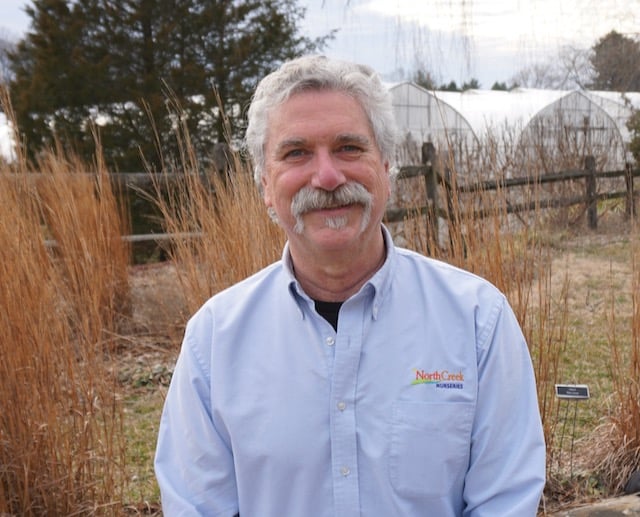
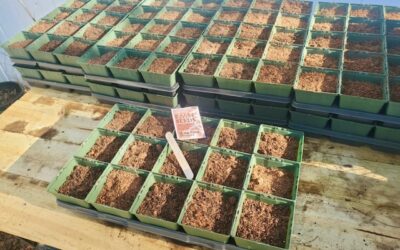
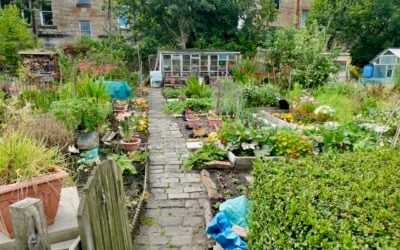
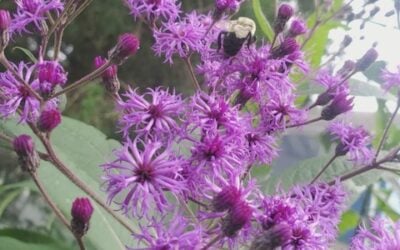
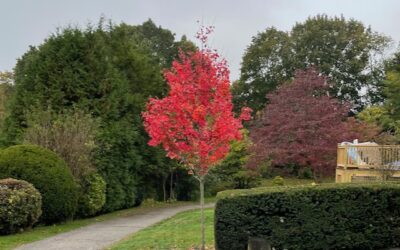
 Subscribe
Subscribe